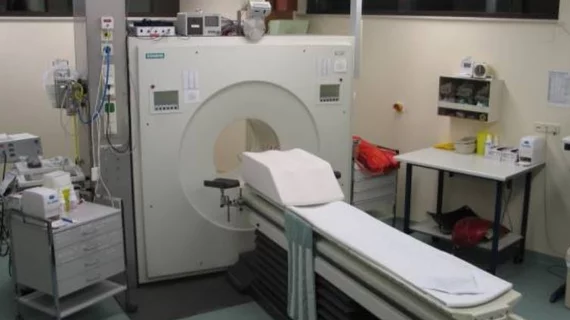FDA grants clearance to AI-powered imaging system
The FDA has granted 510(k) clearance for technology that uses AI to enhance images from shorter scan procedures.
California-based medical device company Subtle Medical announced the clearance of its SubtlePET platform in a press release on Wednesday, Dec. 5. The platform integrates deep-learning algorithms with any original equipment manufacturer (OEM) scanner and picture archiving communication (PAC) system to enhance images during acquisition without interrupting or altering a radiologist’s workflow, according to the release.
The company believes the AI platform will help hospitals complete more exams daily and reduce the amount of time a patient spends in a scanner, which will hopefully lead to an improved patient experience.
"This FDA clearance is a key milestone in Subtle Medical's mission to bring novel and empathetic deep learning to improve patient satisfaction," Enhao Gong, PhD, founder and CEO of Subtle Medical, said in a prepared statement. "Our focus on image acquisition and workflow differentiates us from other AI companies that are working on post-processing and computer-aided diagnosis products. We are not replacing radiologists––we are addressing the tremendous cost to U.S. healthcare by leveraging deep learning in imaging at the infrastructure level to enable better and higher quality care."
Radiologists workflows were among the many topics of discussion during the annual RSNA meeting last month in Chicago. During one of the presentations, Penn Medicine physician William W. Boonn, MD, called for the inclusion of two-way communication when it comes to adopting AI into radiologists' workflows.
“In order for us to develop workflows that are actually going to be used by radiologists, we need to break down some of these silos and enable better communication, better integration between the two,” Boonn said.

